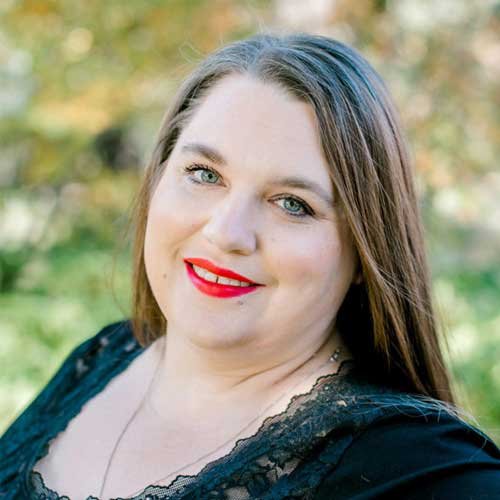Autism Advocate Traces Success to Improv
Jillian Nelson faced a dilemma.
As a receptionist at the Autism Society of Minnesota (AuSM) in 2019, she also taught improv theater classes to people with autism on weekends. She, too, has autism. Meanwhile, AuSM wanted to promote Jillian to legislative advocacy work, which would require her to give up teaching improv.
“At the time, it was a tough choice,” Jillian recalls. “I was learning so much about myself through improv theater. But in public policy I could influence major support and understanding for people with autism.”
She took the job. “It turns out,” Jillian says, “that working with the state legislature is a lot like improv! You have to constantly think flexibly and outside the box and be open to other ideas. It’s like the basis of improv’s ‘Yes, And...’ philosophy of embracing all ideas.”
What improv offers people with autism
“It’s hard to describe what it’s like to be autistic. It’s an entirely different way to live in this world. I don’t know what it is like not to have autism. The world doesn’t work the way my brain is ordered. Improv taught me a different way to think about the world around me and how to interact. Instead of do this and do that. It was about how to be in the world, not just how to look at the world.”
Jillian admits it’s difficult to explain what it is like to be autistic. “I don’t know what ‘normal’ life is like,” she says. Psychologists say that common characteristics are getting anxious or upset about unfamiliar situations and social events and taking longer to understand information.
Improv helped Jillian overcome these characteristics. “For example, one improv situation is called ‘Taxi Driver.’ You join other passengers. I learned to embrace ideas as a group and think from the perspective of another person. This was new for me and made me more socially comfortable.”
Other lessons from her improv experience, both as an instructor and a participant, included:
To see herself apart how others defined her.
To open up and show myself to others.
To become more flexible and adapt to life around her.
To be more creative and look for solutions outside the box.
“As an autistic adult, I might look quirky to you,” Jillian says. “My challenges are invisible and beneath the surface. I have auditory hitches and executive function delays. I’m more verbal than average. So, what I try to do at the Legislature is teach people how to see autism.”
Now she’s a board member of MNprov
Back when Jillian was taking weekend improv classes, her instructor was Michael Bruckmueller, cofounder of MNprov. Jillian’s work at AuSM, the State Legislature and as an improv participant and instructor has come full circle. She has just joined MNprov’s board.
“I’m so glad to see MNprov expand into schools,” she says. “This will give access to all these new social emotional learning skills to students who might not have had access in the past.”
ABOUT AUSM
Founded in 1971, the Autism Society of Minnesota enhances the lives of individuals and families affected by Autism Spectrum Disorder. AuSM serves Minnesotans, throughout their lives, with a fundamental commitment to advocacy, education, support, collaboration, and community building.

